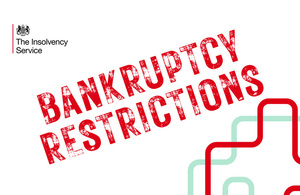County Court Judgements- What are they?

Dealing with unpaid debts is never a pleasant situation, but sometimes it becomes necessary to seek
recourse to resolve these matters. One such avenue available in the UK is the County Court Judgement,
which enables individuals or businesses to demand payment of outstanding debts from others
through the judicial system. Governed by Part 7 of the Ministry of Justice’s Civil Procedure Rules, this
process involves several steps and considerations.
Before initiating a County Court Judgement, it’s crucial for the claimant to serve the debtor with a pre-
action letter. This formal notice serves as a communication tool, detailing the circumstances
surrounding the debt and requesting payment within a specified period, typically 14 days. This step
aims to encourage a resolution without the need for court intervention.
Should the debtor fail to comply with the pre-action letter by either paying the owed amount or
agreeing on a payment arrangement, the claimant can proceed with the formal County Court Claim.
The court fee, which varies based on the claim amount, needs to be paid in advance. Notably, online
submissions often entail lower fees, while claims exceeding £100,000 must be filed via post.
County Court Judgement Documents
Initiating the proceedings involves the court issuing a claim form that the claimant completes with a
Particulars of Claim (POC). This document serves as the core of the case, outlining the specific details
and basis of the claim against the debtor. Once the claim form, POC, and payment are received by
the court, the process advances.
Upon receipt, the court undertakes the processing of the action and issues a County Court Notice to
the defendant. The defendant then has a 14-day window to acknowledge receipt of the notice.
Failure to respond within this period implies an acceptance of the debt by the defendant.
Consequently, the claimant can request default Judgment form, prompting the court to issue a
judgment in default. However, it’s important to note that such judgments can potentially be set
aside, especially considering that they only reflect the perspective of one party.
Navigating through a County Court Judgement demands adherence to procedural guidelines, timely
submissions, and clear communication between the involved parties. While this method provides a
structured framework for debt recovery, it’s advisable to seek expert advice to explore alternative
dispute resolution methods before resorting to court action.
If you are considering serving a County Court Judgement, please get in touch with us now on 0207
504 1300.
What Is a Bankruptcy Restrictions Order (BRO)?
When you declare bankruptcy, you enter a 12-month period as an “active bankrupt,” during which you must adhere to a set of restrictions. If you…
Read MoreKingsway Square Limited (In Administration)
Did you purchase an off-plan property with Kingsway Square Limited (In Administration) which has not been developed – would you like your deposit returned? Are…
Read MoreGibraltar Financial Services Commission (GFSC) – Did they fail Loan Note Holders?
As a loan note holder, you may have placed your trust in regulatory bodies such as the Gibraltar Financial Services Commission (GFSC) to safeguard your…
Read MoreGibraltar Financial Services Commission (GFSC) – 100% Asleep at the Regulatory Wheel
Faith in Regulations Insolvency & Law (I&L) recently received confirmation from the Gibraltar Financial Services Commission (GFSC) that Castle Trust and Management Services Limited (CTMS)…
Read More


